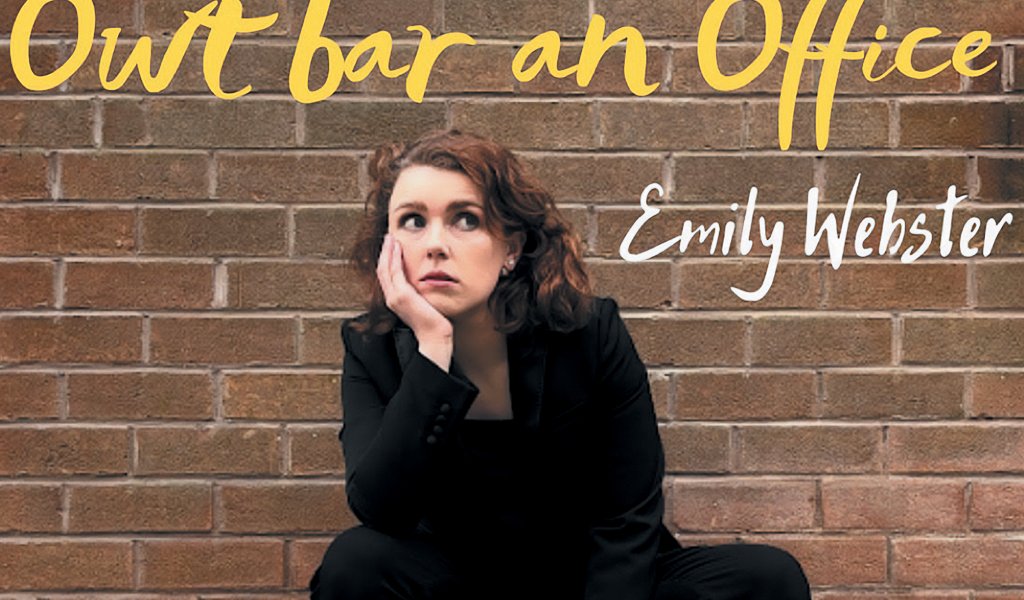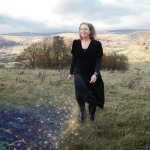Stand-up comedian Emily Webster discovered a niche making people laugh. Now, as Fiona Stubbs learns, comedy has led her back to her first love – the theatre – where she plans to share a more serious, personal message.
EMILY Webster always loved performing. Growing up, her ambition was to become an actress but her hopes were frequently dashed by people’s reactions to her inherited hearing condition.
“I’m at least the fifth generation with hearing loss in our family,” she says. “My dad is also deaf, but our experience of hearing loss is that no-one talks about it. None of the previous generations of my family learned to use sign language. We are deaf, but we are not [involved] in deaf culture.
“When I’ve applied for acting work, I’ve been told: ‘if you can’t hear, you are not going to get any roles.’”
Instead, after taking a BTEC in performing arts at Chesterfield College, Emily launched herself into a variety of jobs… her one criteria being that she definitely did not want to work in an office.
She explains: “I’ve had jobs in retail, call centres and in theatres. I’ve been a tour guide, a waitress and a cleaner. I’ve worked in procurement for Derbyshire County Council and South Yorkshire Fire and Rescue.
“The idea for comedy came when I was working in research and development for a play in Nottingham in 2022. I was chatting to some people and they asked if I’d considered stand-up.
“I thought I’d give it a go because, why not? I was advised early on to talk about not being able to hear properly. I felt some pressure to do that and was told ‘you should talk about being deaf – it’s a USP.’
“I did that a couple of times but realised it didn’t feel right. I wasn’t comfortable talking about it. For me, even as an audience member, I don’t particularly want people with protected characteristics to only talk about that.”
So, Emily decided to talk about work instead – sharing some of the funny and eye-rolling situations she had experienced in her various work roles.
She recalls: “I’d never thought much about it but when silly things happened at work, my mum would jokingly say ‘that could be in your comedy show’.”
The result was her stand-up routine Owt Bar An Office – which she has performed at venues over the last year, including festivals in Nottingham and Leicester.
“I embellish things a bit – but not so much,” she grins. “It feels good when people come up to me after a show and can identify with certain parts of it.”
She credits her mum as a key source of inspiration. “She’s from a big family and there’s always a big mix of personalities when we get together – mum says I get my humour from her. There are ways of speaking… sometimes I wonder who I sound like – my mum or aunties. A lot of my stuff is quite close to home.”
Comedy brings both fulfilment and frustrations… especially when Emily is compared to well-known comics such as Sarah Millican or Victoria Wood. “You don’t see it as much with male comedians – they’re just taken at face value. But, with women, it feels as though you have to be the next version of someone else, rather than the first version of yourself.”
Having explored the humour of work and everyday life, she is now focusing on the theatre… and her passion to make it more accessible for people who can’t hear.
While actress and Strictly Come Dancing winner Rose Ayling-Ellis has raised the profile of deafness, Emily says it hasn’t yet increased opportunities for others in the theatre or wider showbusiness.
Supported by Arts Council funding, she is writing a stage show which will feature spoken words and British Sign Language performed at the same time.
It will be a deeply personal performance role for Emily.
“Without the support of Arts Council and theatre companies like New Perspectives, Graeae and Derby Theatre, this wouldn’t be happening for me,” she says.
“I’m writing about what life has been for me and my family. I feel as though deaf stories have [so far] been filtered through hearing people.
“I had relatively normal hearing as a child – enough to be able to learn to speak. When I was about seven years old, I began to have trouble hearing but I didn’t get a hearing aid until I was 17 as people – including specialists – said I was making it up. When I finally got a hearing aid, it was, like, WOW!
“I had to lip read throughout school and learned to sign as an adult. I’m still learning. I’m at a conversational level; not perfect, but I’m working on it.”
She adds: “It’s taken 13 years to get where I am. I haven’t been able to get work as a deaf actor so I’m writing my own production with access embedded into the process to try to create something different.
“I initially wanted to go into theatre, but found myself unable to pursue my ambitions. I found a diversion in comedy – and that has now led me back to where I always wanted to be.”






